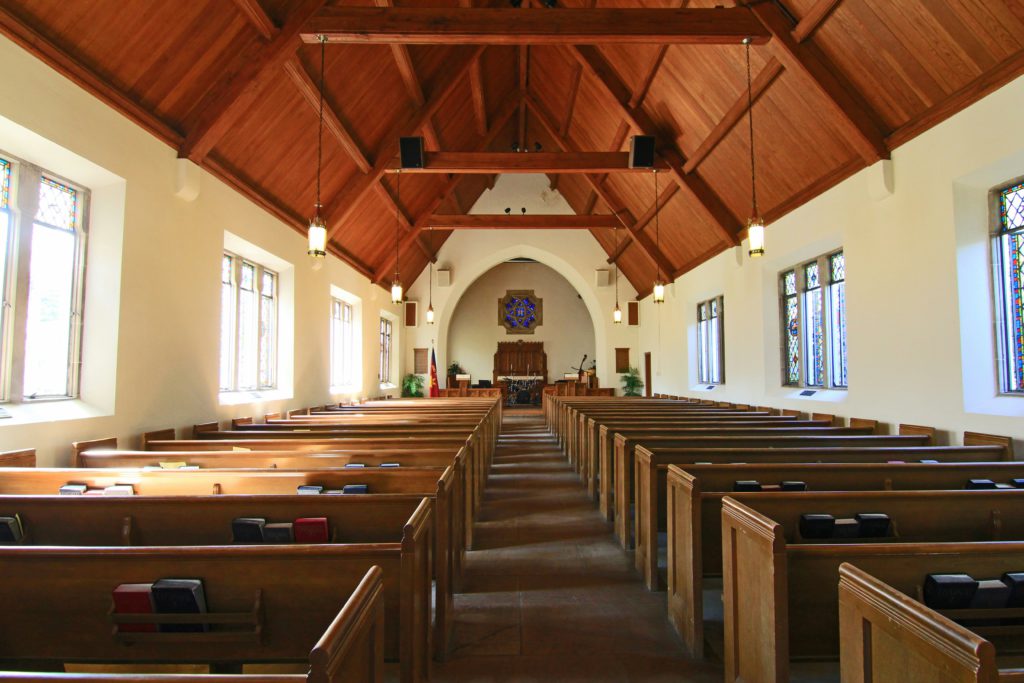The Psychological Power of Christian Community
The Psychological Power of Christian Community
Categories: AACC BLOG
by AACC Staff

Learn How Life in the Church Helps Mental Health
As a counselor or pastor, you’ve likely seen it time and time again: someone comes to you overwhelmed by life’s struggles—drowning in loneliness, anxiety, or deep emotional pain. They might have tried to cope independently, but what they’ve tried hasn’t worked, and they still long for something more.
When you counsel someone struggling, don’t forget that the Gospel is their greatest fundamental need. Maybe the person you’re counseling still needs to accept Christ—but if they’re a Christian without a close community, God can provide that. In fact, He’s designed us for community.
Many professionals in the helping fields are beginning to understand what we’ve known all along: faith-based communities offer unique mental health benefits that can’t be found elsewhere. When you belong to a group that shares your faith, the connection is deeper—safe, grounded, and meaningful. For encouragement, edification, and equipping, there’s no better place for followers of Christ than together.
To the Christian, a gospel-centered community isn’t just beneficial; it’s essential. Scripture clearly states that God wants His people to fellowship regularly with one another, and there are plenty of reasons for that. While there is much more to be said about why the church exists, let’s briefly explore the psychology behind the church and learn how God uses fellowship to grow us.
Purpose and Belonging Can Be Found in the Church
One of the deepest desires of the human heart is the need for purpose. People want to know that their lives matter, long to be part of something bigger than themselves, and yearn for purpose and direction. Christ offers all three and uses community to help people find, cultivate, and achieve their happiness in Him.
While loving the world can leave people feeling lost and adrift, the Gospel offers great hope and purpose. 1 Peter 1:3 (English Standard Version, 2001) says this:
“Blessed be the God and Father of our Lord Jesus Christ! According to his great mercy, he has caused us to be born again to a living hope through the resurrection of Jesus Christ from the dead, to an inheritance that is imperishable, undefiled, and unfading, kept in heaven for you, who by God’s power are being guarded through faith for a salvation ready to be revealed in the last time.”
Peter’s words are written to you if you’ve repented and trusted Christ for salvation. If you’re a Christian, you have much to be joyful over, and your joy should manifest in a life of purposeful obedience to the Lord. Christian, God didn’t save you to live a confused and aimless life—He saved you to live with fierce conviction.
While everyone can sometimes feel lost and adrift, the church’s mission never changes. Every Christian should be purpose-driven, and Christians who commune with purpose-driven Christians become more purpose-driven. Christian community doesn’t just make the believer feel better; it makes the believer better.
Fellowship can be life-changing for someone who has struggled with feelings of purposelessness. Getting seriously involved with a local church could make a massive difference in the life of a client who lacks direction and purpose.
Growth and Accountability: Two Ways Christian Community Sharpens Us
While connection and purpose are essential, there’s also something uniquely transformative about the accountability a Christian community fosters. We grow best when others hold us accountable, and part of God’s purpose for the church is to provide that accountability.
In fellowship, believers support one another, uphold integrity, and collectively strive towards spiritual growth—all of which happens through intentional discipleship, mentoring relationships, and sound biblical teaching. If you have a Christian client who hasn’t found those things, it’s time for them to start looking.
Moreover, a healthy church community allows people to be open about their weaknesses and be discipled without fear of hostility. An atmosphere of safety and trust enables real growth in areas of weakness. No matter one’s struggle, the church is where healing and transformation can occur through repentance, the power of accountability, and the Holy Spirit.
Church Community is Vital for the Christian’s Mental Health
As you continue your work, remember Christian communities’ profound psychological benefits. The church is more than just a place of worship—it’s a place of accountability, purpose, encouragement, and much more.
Understanding the vital role community plays in Christian mental health is critical to being an effective counselor. Whether someone is facing loneliness, trauma, or simply seeking meaning, the healthy church can be the lifeline that leads them to a place of peace and renewal.
God designed us to live in a community for a reason. It’s there—with other believers—that people can find the abundant life that Jesus promised.
_____________________________________________________________________________________
References
English Standard Version Bible. (2001). Crossway.
